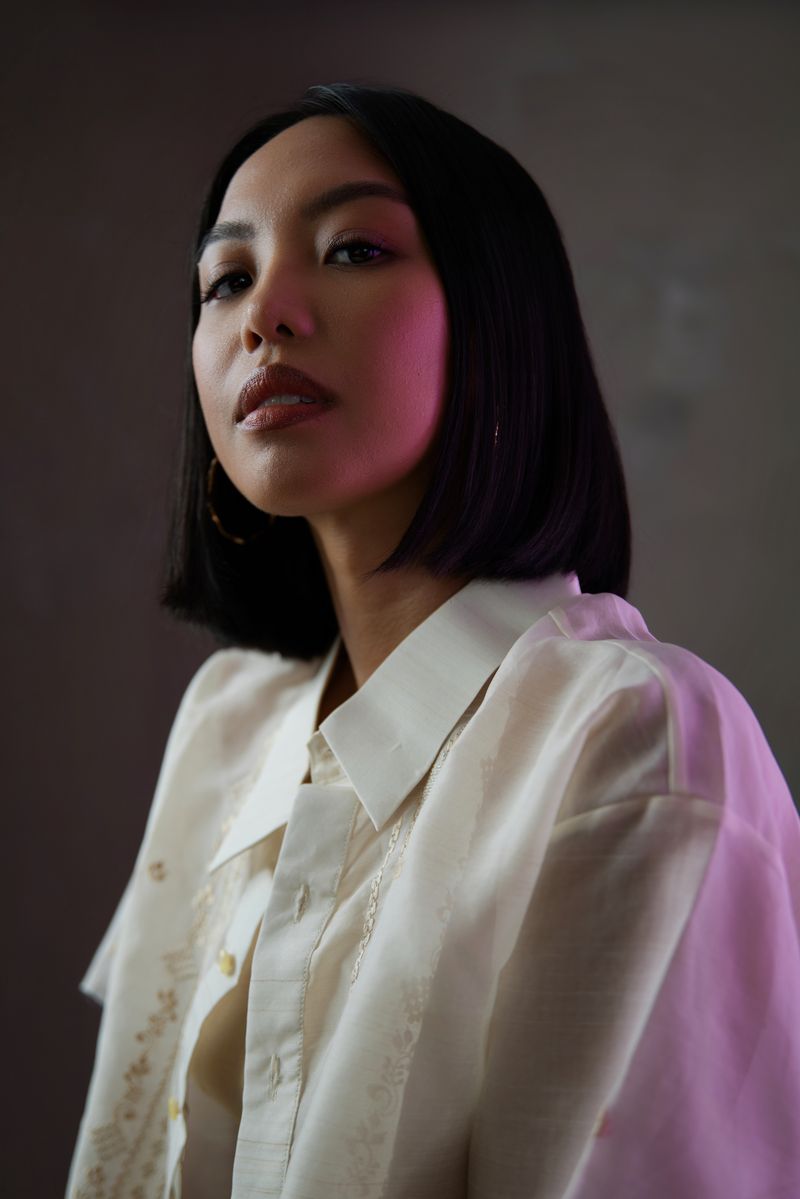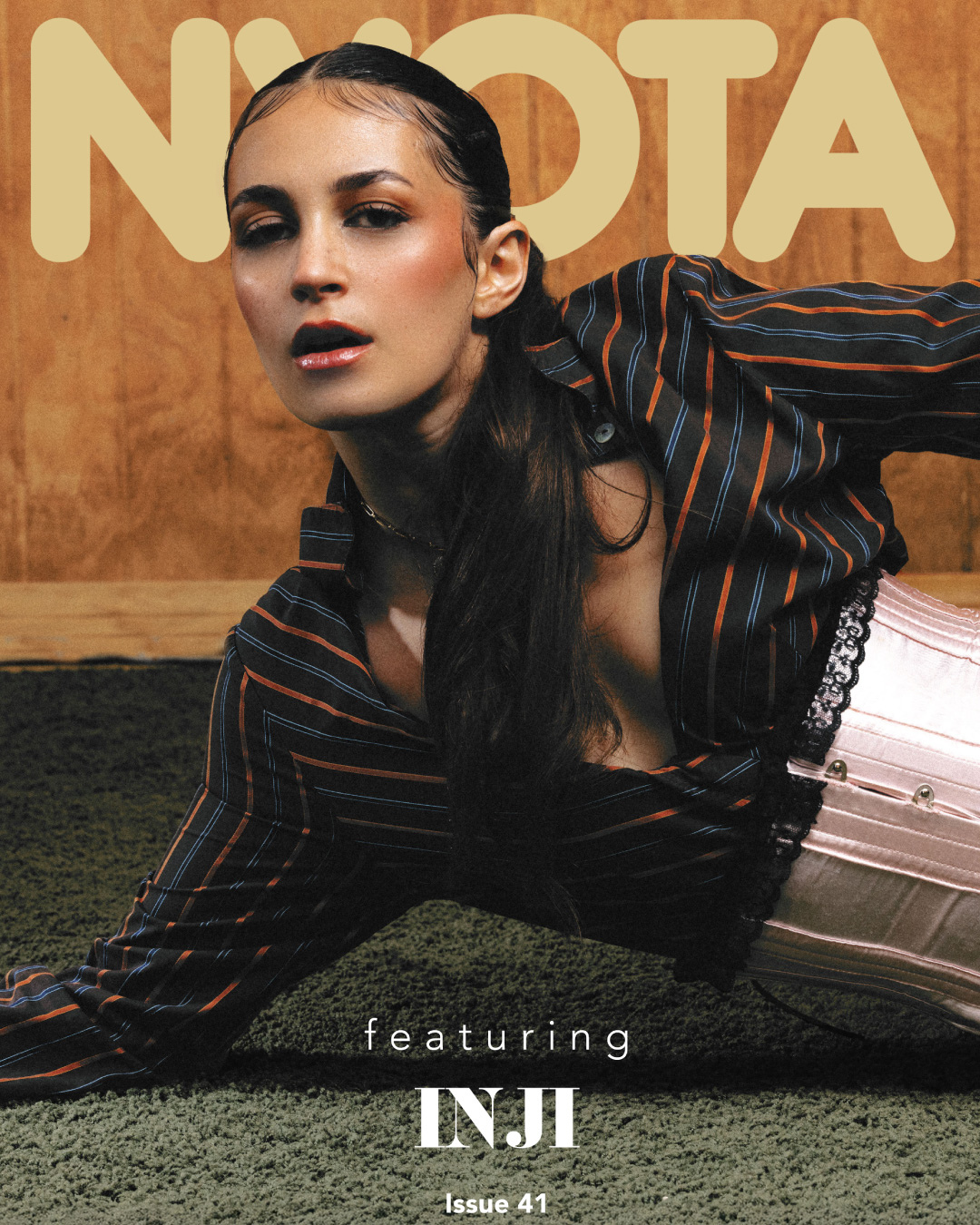When Rachel Leyco wanted to see stories that represented her lived experiences on screen, she took matters into her own hands. She began writing, directing, and producing projects that enabled underrepresented voices to shine. Leyco spoke to NYOTA about her production company, Empowerhouse, her advice for aspiring filmmakers, and the personal project she’s creating, “Milk & Honey.”

What initially sparked your interest in storytelling?
When I was a shy kid growing up in Texas, I became obsessed with books, TV shows, and films. I’d act out the characters I saw on screen, rewatch my favorite movies for hours, and get completely lost in books because I experienced everything so visually and felt it all so deeply. Storytelling became my way of processing emotions. Coming from an Asian American household where we didn’t openly talk about our feelings, stories became my therapy—and eventually, my calling.
You started writing to take control of the stories you could be part of. How empowering has it been to not only write a script but then see it come to life off the page?
Creation is part of our human purpose—we’re all creative beings. To see words I’ve written transform from the page into a living, breathing world on screen is nothing short of magical! It’s incredibly empowering to know I can make something out of nothing, that I can bring the stories I want to tell into existence. As an actor, I’m often waiting for opportunities to come my way, but writing and creating is how I take my power back. It’s me telling the universe, ‘I will make my own opportunities. I will create my own path.’ To create is to live in your power.
With the advent of social media, getting content to a large audience has never been easier. Is it exciting to be part of the industry at this time, where so many diverse voices are getting the chance to have their work seen?
Absolutely! Social media has its pros and cons—and yes, it’s super saturated now—but it’s still an incredible way for independent creators like myself to get our work seen and our voices heard. It’s an opportunity that never existed when I was growing up, and so many artists have been discovered through these platforms. But there’s a flip side! Social media has opened incredible doors for independent creators and diverse voices, but follower count should never be mistaken for talent. There are so many brilliant underrepresented artists with small platforms who deserve just as much of a chance.
You have received a grant from CAPE and Janet Yang Productions, and with this grant, you’ll be able to make your film, Milk and Honey. Milk and Honey is a deeply personal story as it’s about your mother’s immigration story. In these times, does the project hold even more significance for you?
Thank you! Yes, Milk & Honey is such a special story for me and my family, and it feels even more significant now in the face of ongoing anti-immigration rhetoric and laws in America. Sadly, not much has changed, has it? As a proud Filipino-American 1.5 immigrant, this film is my way of honoring my mother’s story, my community’s history, and my ancestors’ sacrifices. It feels like a responsibility—and one I carry with pride—to illuminate immigrant stories and remind the world that immigrants deserve respect, dignity, and recognition. Milk & Honey is more than personal; it’s urgent!

Tell our readers about Empowerhouse. What is the mission of your production company?
Empowerhouse is my mission-driven production company dedicated to telling stories that empower, entertain, and create impact. Our focus is on amplifying underrepresented voices—especially women, queer folks, and communities of color—because we deserve to see ourselves as the leads, the heroes, the complex and messy humans we really are. At Empowerhouse, we want to break stereotypes and build bridges through storytelling. For me, it’s not just about representation; it’s about shifting culture, sparking empathy, and reminding people of their own power.
What has creating Empowerhouse taught you about yourself and the film and television industry as a whole?
Creating Empowerhouse has taught me that I don’t have to wait for permission to tell the stories I believe in. It’s shown me that I can be both an artist and a leader, and that building community around storytelling is just as important as the art itself. Through Empowerhouse, I’ve been able to bring original stories to life like CRAZY, a queer AAPI web series about mental health, and Tiffany Blues, a romantic comedy created by and starring transgender artists. We’ve also acquired projects like Maarte, a docuseries highlighting powerful indie Filipina artists across the country. All of these titles are available to stream for free on our Empowerhouse YouTube channel! None of this would be possible without my incredible team at Empowerhouse—we’re small, but we are mighty and powerful. These projects remind me why I started Empowerhouse in the first place: to amplify underrepresented voices with authenticity and heart. As for the industry, it’s made me realize how much work still needs to be done—but also how powerful it is when we create our own lanes. Empowerhouse has taught me resilience, resourcefulness, and that the future of film and TV belongs to those bold enough to reimagine it.
Your film Thank You for Breaking My Heart is on its film festival run, and it feels like Upload meets The Good Place meets Ghosts of Girlfriends Past. How did the story come about? Were you reflecting on past relationships and wanted to work that out through film?
Thank You for Breaking My Heart came from a very personal place—grappling with heartbreak, grief, and the ways we carry past relationships into our present. I was fascinated by the idea that our memories and emotions almost have a life of their own, shaping how we move through the world. The story blends humor, romance, and a touch of magical realism because that’s exactly how heartbreak feels: messy, painful, and sometimes absurd. Similar to Upload, I used a VHS aesthetic as a recurring motif—a way to literally rewind the past and bring it into the present. I even filmed certain memories with my own personal VHS camcorders and tapes to make them feel authentically nostalgic. Writing and starring in it was my way of processing all of that, turning reflection into creation. I wanted to explore mental health with levity while keeping it grounded and real—showing that even with depression, anxiety, and grief, there’s a way to turn pain into power.
What advice do you have for aspiring filmmakers?
Make your art. Go create. Self-doubt and wanting to quit are part of the process—that’s normal. I give myself 24 hours to feel it all, then I release it and start fresh. Keep showing up for yourself, because only you can tell your story.
This story first ran in NYOTA’s Empowerment Issue. Read more from the Issue here and purchase a print copy here.




